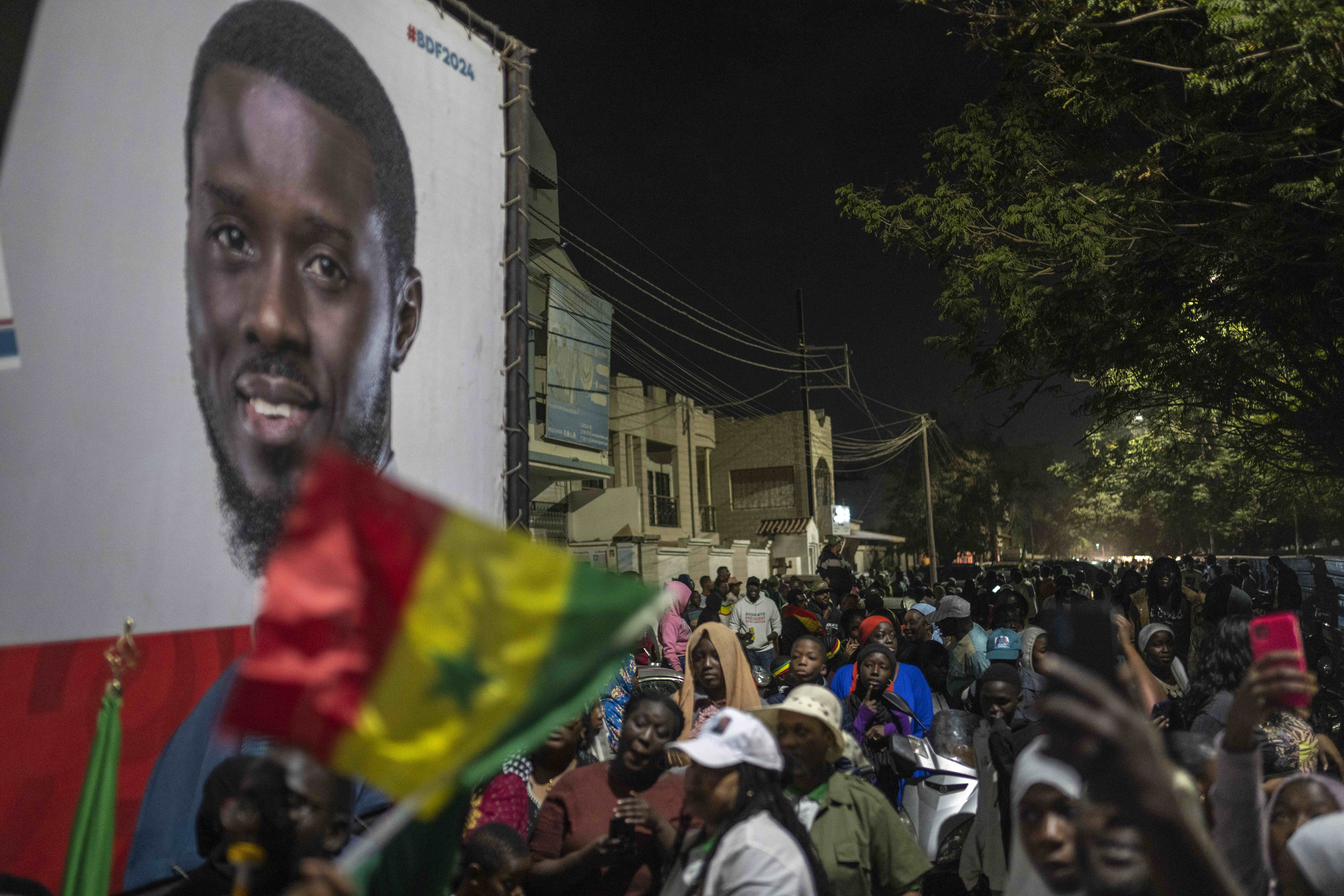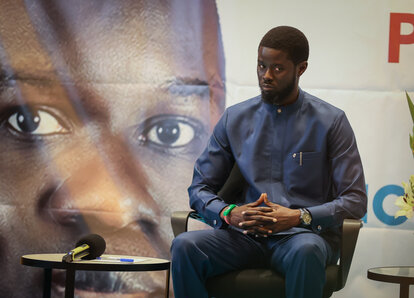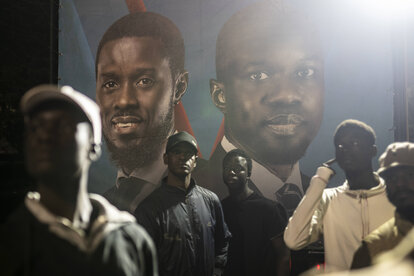Opposition Politician Faye
Just Released From Prison, Now President

Anhänger des Präsidentschaftskandidaten Bassirou Diomaye Faye.
© picture alliance / ASSOCIATED PRESS | Mosa'ab ElshamyThe people had already celebrated on election night. They chanted "Sonko, Sonko, Sonko", who was not allowed to run due to a prison sentence despite political amnesty. And they supported a party (PASTEF) that had been dissolved by the authorities in 2023. One of the many inconsistencies that accompanied this year's presidential elections in Senegal.
After a preliminary vote count awaited with the highest tension, it became clear on Monday afternoon that the political duo had achieved a surprising victory. The streets of Dakar were eerily quiet in the morning. The usually busy Corniche, the main artery of traffic-congested Dakar, was deserted on Monday morning.

Ousmane Sonko
© picture alliance / Anadolu | Cem OzdelIt was long unclear whether and when the elections would take place
As if none of this had happened: the weeks-long roller coaster between elections now or later, power struggles between the Constitutional Council and the Executive, violent unrest, human rights violations, protest bans, internet shutdowns, and the controversial general amnesty. On election Sunday, the existing political establishment was dismissed. The Sonko-Faye duo, released from prison just ten days ago as part of a political amnesty, achieved immediately what was considered impossible just a few weeks earlier: a landslide victory in the first round of voting.

Das Politikerduo Bassirou Diomaye Faye und Ousmane Sonko
© picture alliance / ASSOCIATED PRESS | Mosa'ab ElshamyThe final numbers are not yet available, but the current vote count shows a clear majority in favour of the election coalition led by Sonko and Diomaye, to which individual politicians and parties like the liberal Senegalese Democratic Party (PDS) of former President Abdoulaye Wade had joined in recent days.
Former Prime Minister is the big loser
Former Prime Minister Amadou Ba, nominated by the previous ruling party the Alliance for the Republic (APR) as successor to Macky Sall, has to settle for a scant third of the votes. The small remainder is distributed amongst all other candidates, who thus sink into insignificance. A timely transfer of government responsibility from President Macky Sall to Bassirou Diomaye Faye is now unobstructed. Since Sall's term expires on April 2nd and there is no need for a second round of voting, this can be done without a constitutionally controversial extension of the president's term.
Senegal, this West African country crucial for the stability of the region between the Senegal and Casamance rivers, has clearly opted for change. A vote against continuity and for an anti-establishment course with slightly rebellious tendencies. Poverty, hopelessness, corruption, and last but not least, the obstacles to the election originally scheduled for the end of February, have led to the sanctioning of the old guard.
Expectations are high
The expectations for the political duo Faye/Sonko are enormous. It is not clear what role Sonko will play in the future. He is the more well-known, charismatic leader who decisively contributed to Faye's election as the new head of state. How long will Sonko be satisfied with a role in the background? How will Faye, a reserved, almost shy-looking, inexperienced politician, fill this prominent presidential office, similar to the French presidential palace and equipped with significant powers?
Faye takes on responsibility in a country in turmoil. The past turbulent weeks were also a test of democracy, in which the Constitutional Council played a decisive role. Many allegations need to be addressed. A reform towards a balanced coexistence of legislative, judicial, and executive branches should be prioritised to better protect Senegal's constitutional foundation in the future.
The numerous election observation missions, from the EU to the African Union and the West African Economic Community (ECOWAS), will attest to whether the elections were conducted fairly and transparently.
Endowed with this seal of approval, Senegal would regain its reputation as a bulwark of robust democracy and a functioning rule of law. With a youth looking hopefully into the future, and with a black eye.
This article was first published on March 25, 2024, in Tagesspiegel.
